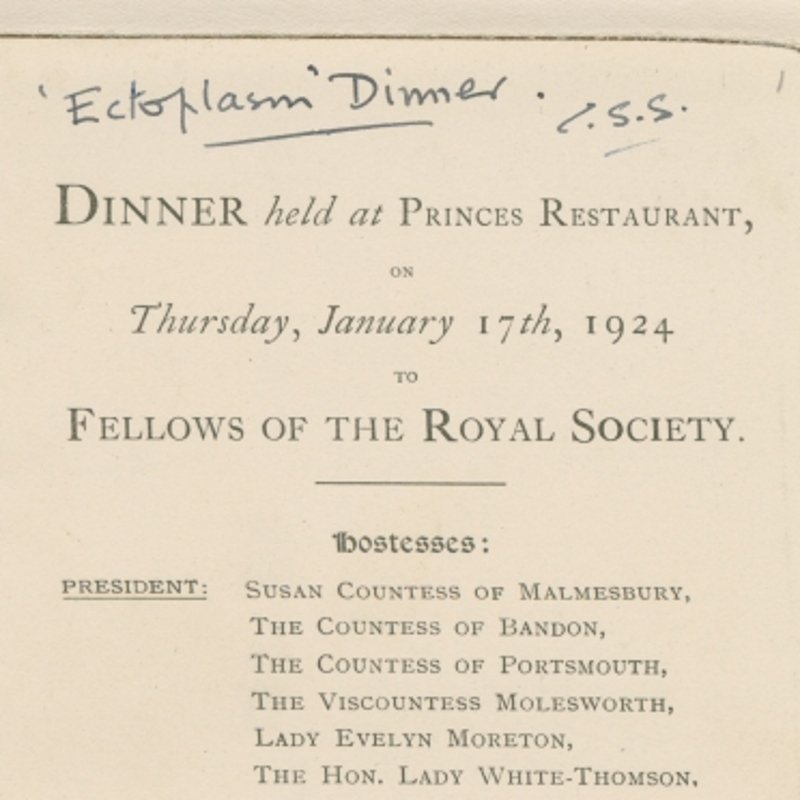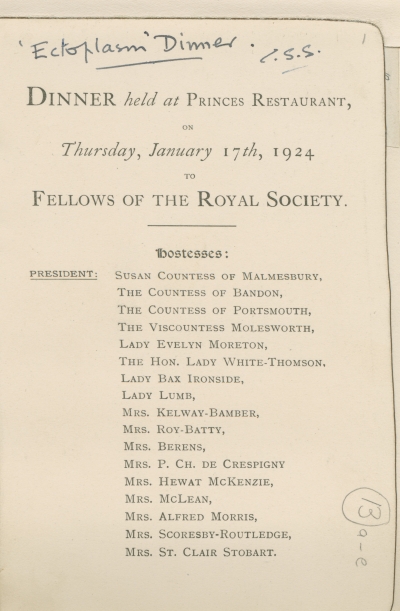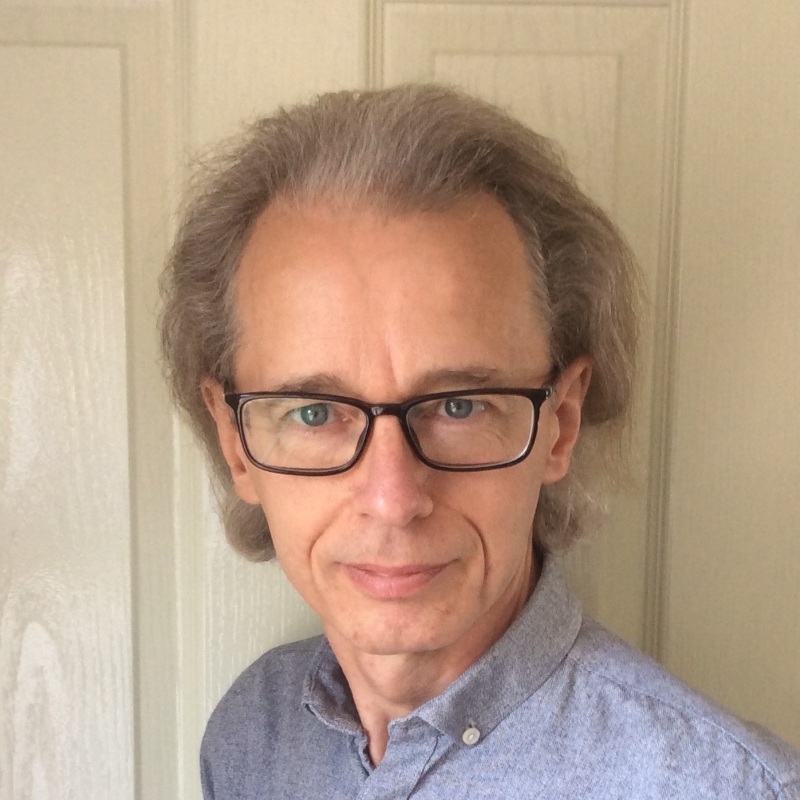Keith Moore tells a ghastly tale of skulduggery at the Royal Society, with a spot of fine dining thrown in.

The nights are growing darker and Christmas is the traditional time for a good ghost story. So gather round my crackling blog fire for a ghastly tale of skulduggery at the Royal Society, a spot of fine dining, and just a passing shade of the Great Detective.
Okay enough of that. This confirmed sceptic doesn’t believe in anything remotely supernatural, but a few well-known 19th and early 20th century scientists did. In the period immediately after the Great War, where there had been such wholesale slaughter on the battlefields of Europe, one can appreciate the reasons behind the wider growth in what my grandmother used to call the 'spooky clubs' – spiritualist meetings or séances. But at the Royal Society?
Well not quite. The great physiologist Sir Charles Scott Sherrington (1857-1952), President during the Twenties, was a notable book collector. Hence, among his gifts to the Library, there are some volumes of Royal Society-related ephemera in which he preserved this intriguing document from 1924. It is headed Ectoplasm Dinner…

Associated notes and letters recount at least part of this curious episode. The dinner in question was organised by a Mrs Roy-Batty (no, not the android from Blade Runner) in order to determine 'whether the Royal will allow a paper to be submitted & in due course read on ‘Recent observations on Protoplasm’ [Ectoplasm]. This being so absolutely tangible both to sight and touch – would seem to be quite as much within the interpretation of Natural Knowledge by the Royal – as say Liquid Air; & considerably more so than Split Atoms!!' It is probably quite fortunate that Ernest Rutherford’s opinions were not sought.
The proposed paper on ectoplasm seems to have been of French origin and may have been by, or about, Dr. Gustav Geley (1868-1924). Geley claimed to have made casts of disembodied hands in séances by the 'medium' Franek Kluski (1873-1941). The more cynical among us might wonder how the supposedly clairvoyant Kluski failed to predict Geley’s death in a plane crash that year, but the more amenable Mrs Roy-Batty made a supplementary enquiry as to whether such casts might be exhibited at one of the annual Royal Society soirees.
This does appear to be a fairly barefaced attempt to circumvent a normal submission and refereeing process, for the paper at least. In a recent essay for Notes & Records of the Royal Society, Jeff Hughes has observed how food has mediated scientific discourse, but in this case a good dinner just didn’t work: Sherrington wisely opted to avoid it and follow-up invitations to lunch. The paper failed to materialize (sorry, I couldn’t resist!) and visitors to the 1925 soirees had to make do with a film show by, yes, Ernest Rutherford.
It is an interesting postscript that the writer who did publish an account of Geley’s 'experiments' was the spiritualist and Ghost Club member Sir Arthur Conan Doyle (1859-1930), better known as the creator of Sherlock Holmes. Might Conan Doyle have written for Proceedings A? Unlikely, I think. We have in our archives a famous exchange between Conan Doyle and the astronomer Sir James Jeans (1877-1946) following the latter’s polite rubbishing of spiritualism on the BBC in 1930. Conan Doyle enquiried 'How can a man of science who has had no experience contradict the statements of men like Lodge, Crookes, Russel Wallace, Hyslop, Myers, Hodgson, Hans Driesch and so many others of the greatest brains of mankind? Is that a scientific attitude to take up?' Well, as Jeans might have argued, it was. Nullius in verba. Happy Christmas everyone.

